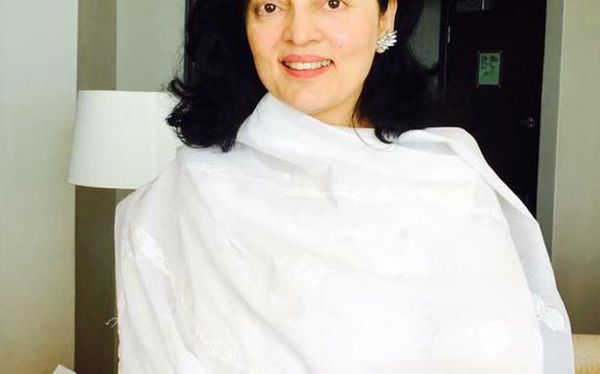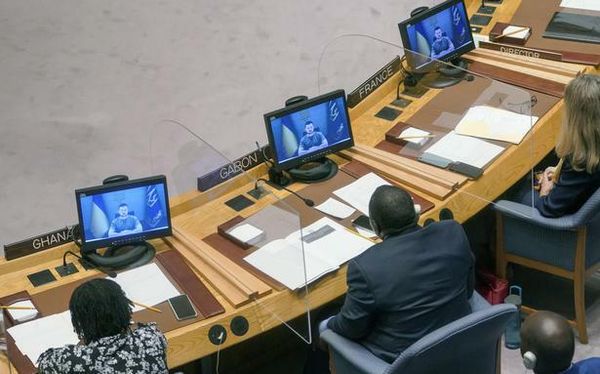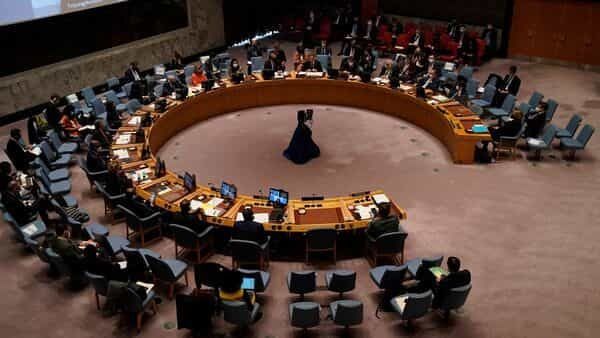Calling for an immediate cessation of hostilities and violence in Ukraine, India reaffirmed that it advocates dialogue and diplomacy to end the Russia-Ukraine war and mitigate economic challenges emerging from the conflict, particularly in the developing countries.
India’s Permanent Representative Ruchira Kamboj, speaking during a Security Council meeting to mark six months since the beginning of the conflict in Ukraine on August 24, said it is in collective interest to work constructively, both inside the United Nations and outside, towards seeking an early resolution to the war.
“We continue to reiterate that the global order is anchored on international law, the U.N. Charter and respect for territorial integrity and sovereignty of states,” she said. “India continues to advocate for an immediate cessation of hostilities and an end to violence. We encourage talks between Ukraine and Russia. Prime Minister Narendra Modi has himself, more than once, spoken to them, in this regard,” she said.
Emphasising that India will work with the international community and partner countries to mitigate the economic hardships that are resulting from the Ukraine conflict, she said that the impact of the war is not just limited to Europe and has exacerbated concerns over food, fertiliser and fuel security, particularly in the developing countries.
“India remains deeply concerned over the situation in Ukraine. The conflict has resulted in loss of lives and countless miseries for its peoples, particularly for women, children and elderly, with millions becoming homeless and forced to take shelter in neighbouring countries,” she said.
Ukraine celebrated its Independence Day on August 24, which also marked exactly six months since the start of Russia’s military offensive against the country on February 24. Western nations, including the U.S., have imposed major economic and other sanctions on Russia following the aggression.
India has not criticised Russia for its aggression against Ukraine. New Delhi has repeatedly called upon the Russian and Ukrainian sides to return to the path of diplomacy and dialogue, and also expressed its support for all diplomatic efforts to end the conflict between the two countries.
Calling for prioritising urgent humanitarian relief in Ukraine, Ms. Kamboj said humanitarian action must always be guided by the principles of humanitarian assistance, i.e., humanity, neutrality, impartiality, and independence and these measures should never be politicised. She said in the last six months, India has dispatched 11 consignments of approximately 97.5 tonnes of humanitarian aid to Ukraine and neighbouring countries like Romania, Moldova, Slovakia and Poland.
She said Ukraine and its neighbouring countries offered their full support in the relief and evacuation operation of around 22,500 Indian nationals in February-March this year. “This humanitarian aid and assistance symbolises the human centric development approach of the Government of India, a central tenet of our national beliefs and values, which perceives the whole world as one family,” she said.
Ms. Kamboj informed that India has just dispatched its 12th consignment of humanitarian aid to Ukraine; consisting of 26 types of medicines, including ‘hemostatic bandages’ meant to stem bleeding of deep wounds in children and adults. “This was a specific request by the Ukrainian side and we made sure that we reacted in the fastest possible time to meet this,” she said.
Underlining that food security remains a major concern, she said it is necessary for all of us to adequately appreciate the importance of equity, affordability and accessibility when it comes to food grains.
“India has been approached for the supply of wheat and sugar by many countries and we are responding positively. In the last three months alone, India has exported more than 1.8 million tonnes of wheat to countries in need, including Afghanistan, Myanmar, Sudan and Yemen,” she said.
She said that India is trying to increase the production of essential agrarian inputs like fertilizers and there is also a need to focus on the availability of fertilizers and keep the supply chains of fertilizers smooth at a global scale.
“Similarly, efforts should be made to ensure stability in the global supply of fuel commensurate with demand. Open markets must not become an argument to perpetuate inequity and promote discrimination,” she said.
“We have delivered for the world in terms of vaccines. We did it earlier for medicines. So, I would like to assure this Council that India will step forward whenever the global south is constrained on aspects of food, health and energy security and we will do this in a manner that is helpful to the global economy, and does not take undue advantage of countries in distress,” she said.
She emphasised that India’s approach will be to promote dialogue and diplomacy with an overarching aim to end the conflict and work with other partners to mitigate economic challenges emerging from the Russia-Ukraine conflict.
Prime Minister Modi has spoken to the Presidents of Ukraine and Russia on multiple occasions and reiterated India’s position.










